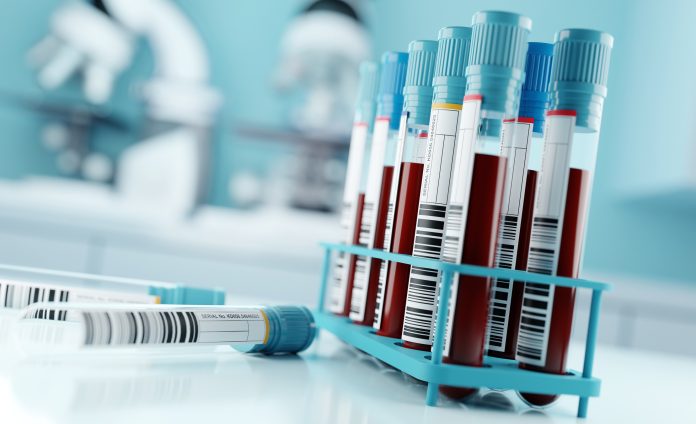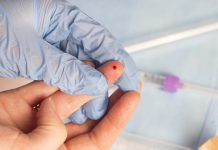A groundbreaking UK clinical trial led by UCL aims to revolutionise Alzheimer’s diagnosis using a simple blood test
The ADAPT (Alzheimer’s Disease Diagnosis and Plasma pTau217) team, led by Professor Jonathan Schott and Dr. Ashvini Keshavan, is investigating whether a blood test that measures the protein p-tau217 can enhance the early and accurate diagnosis of Alzheimer’s disease.
The landmark trial is part of the Blood Biomarker Challenge, an initiative supported by the Alzheimer’s Society, Alzheimer’s Research UK, and players of the People’s Postcode Lottery, aiming to determine if the blood test is a reliable form of Alzheimer’s disease diagnosis.
Can blood tests shape the future of Alzheimer’s disease?
Alzheimer’s disease is linked to the build-up of two key proteins in the brain called amyloid and tau. P-tau217 is a promising biomarker and reflects the presence of both amyloid and tau in the brain. Previous evidence has suggested that blood tests, such as plasma p-tau217, can detect these proteins with accuracy comparable to gold-standard methods, such as lumbar punctures, and may be less invasive, more accessible, and cost-effective.
These blood tests are not standalone diagnostic tools, but they can play a key role in the broader clinical assessment of Alzheimer’s diagnosis.
The trial will investigate whether providing the blood test results to patients and their clinicians near the start of Alzheimer’s assessment could aid diagnosis and guide decisions on further investigations and treatments.
The study will recruit 1,100 participants through NHS memory services, including individuals from diverse geographic, ethnic, and socioeconomic backgrounds, as well as those living with other health conditions, to ensure a broad representation of the population.
One in three people does not have an Alzheimer’s disease diagnosis
The clinical trial follows the assessment and validation of the p-tau217, which is now established in the National Hospital for Neurology and Neurosurgery’s NHS clinical laboratory.
The first ADAPT trial is scheduled to begin in late August at Essex Partnership University NHS Foundation Trust, with 19 additional specialist NHS Centres planned across the UK. All participants will receive standard diagnostic assessments and care. Half of the participants will receive their blood test results within three months of being assessed, and the other half will receive theirs after 12 months.
The team will assess whether providing results earlier speeds up diagnosis, guides decisions about further investigations, and influences how both patients and clinicians interpret and respond to the results.
Furthermore, the researchers will assess the impact of blood test results on quality of life using a system called the EQ-5D-5L, a standardised instrument for measuring health-related quality of life, as well as healthcare costs, and their relevance to people from diverse ethnic backgrounds or with conditions such as kidney disease.
Professor Jonathan Schott of the UCL Queen Square Institute of Neurology and Chief Medical Officer at Alzheimer’s Research UK, said: “We are thrilled to welcome participants onto the ADAPT trial – a critical part of the Blood Biomarker Challenge, which we hope will take us a step forward in revolutionising the way we diagnose dementia.
“After decades of research, we now have a blood test for Alzheimer’s disease that is backed by strong scientific evidence and provides comparable information to other gold-standard diagnostic tests, such as PET scans and lumbar punctures, yet is far more accessible and cheaper.
“Currently, only about 2% of people diagnosed with Alzheimer’s have access to one of these gold-standard diagnostic tests. While identifying Alzheimer’s disease early and accurately is already important for enabling access to current therapies and planning care, it will become even more critical as a new generation of treatments emerges that can slow down the decline of memory and thinking. Timely diagnosis will be key to ensuring these advances reach the people who need them most.”
Dr Sheona Scales, Director of Research at Alzheimer’s Research UK, added: “Today, one in three people with dementia do not have a diagnosis. The ADAPT trial is an important opportunity to change this and transform the way dementia is diagnosed across the UK. It shows how sustained investment in research is leading to breakthroughs in dementia.”











